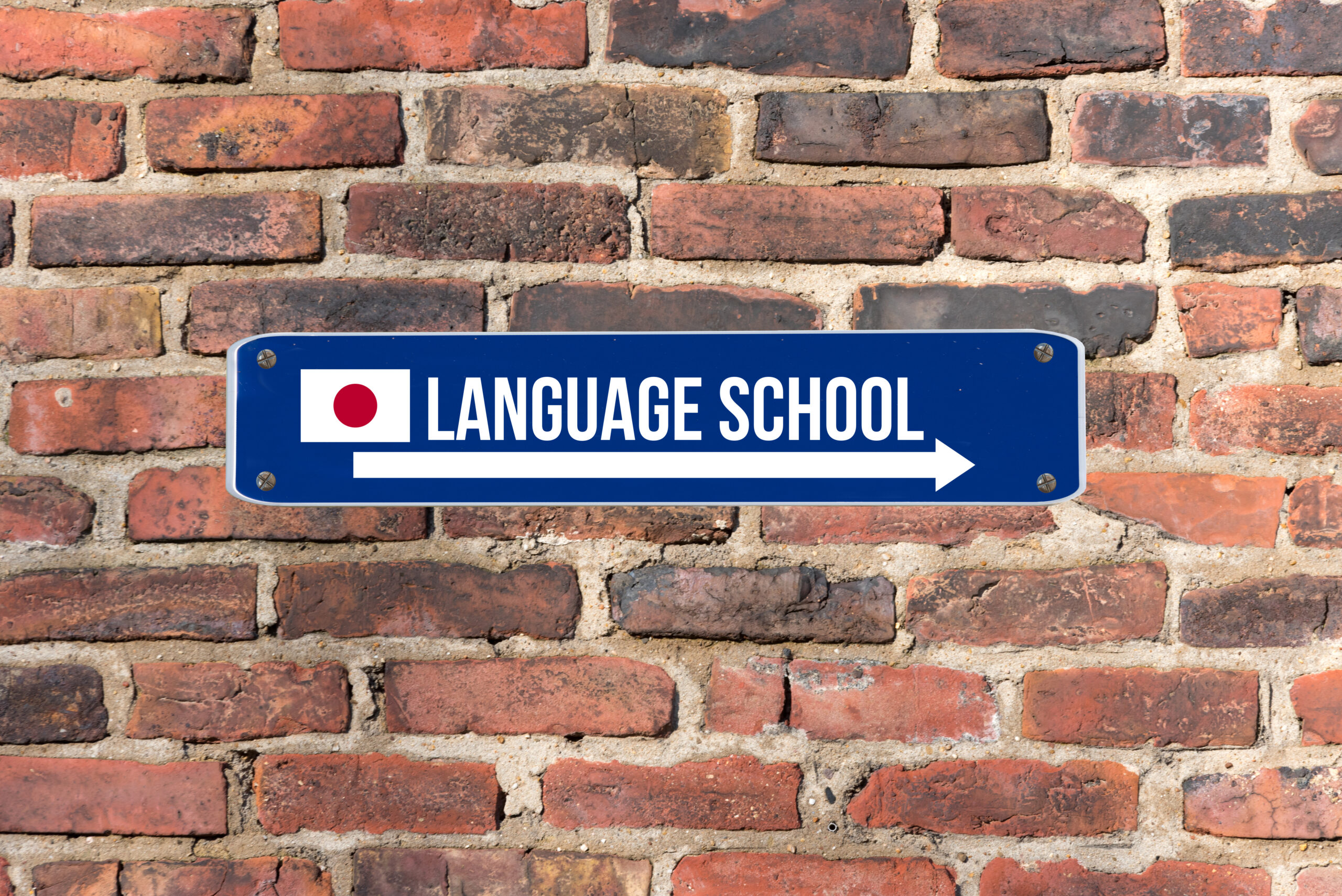Find Your Perfect Japanese Language School in Japan: The Ultimate Guide

Are you dreaming of learning Japanese in Japan but feeling lost in the sea of language school options? You might be thinking, “Which Japanese language school is the best for me?” or “How do I even start choosing?”.
You might be feeling this way.
Choosing the right Japanese language school in Japan is crucial for your success, and it doesn’t have to be overwhelming! In fact, focusing on key aspects like school type, location, and your learning goals will make the decision much clearer.
In this article, we will guide you through everything you need to know to find your perfect Japanese language school in Japan. We’ll explore the different types of schools, key factors to consider when choosing, and how to make the most of your language learning journey in Japan.
Why Choose a Japanese Language School in Japan?
For many aspiring learners of Japanese (日本語 – Nihongo), the dream of fluency often intertwines with the allure of experiencing Japan firsthand. While self-study and online resources offer valuable tools, immersing yourself in the Japanese language and culture within Japan itself provides an unparalleled learning environment. This is where Japanese Language Schools (日本語学校 – Nihongo Gakkou) in Japan become an invaluable asset. But why exactly should you consider enrolling in a Japanese language school in Japan? Let’s explore the compelling reasons.
Immersive Learning Environment
One of the most significant advantages of studying at a Japanese Language School in Japan is the immersive learning environment. Imagine stepping outside your classroom and immediately being surrounded by Japanese. From train announcements to restaurant menus, and conversations with locals, Japanese becomes not just a subject of study, but the language of your daily life. This constant exposure accelerates your learning and allows you to practice and internalize what you learn in real-world situations.
Structured Curriculum and Effective Teaching
Japanese Language Schools (日本語学校 – Nihongo Gakkou) offer a structured curriculum designed to guide you from beginner levels to advanced proficiency. Unlike self-study, you benefit from professional teachers who are experienced in teaching Japanese as a Foreign Language. They employ effective teaching methodologies, provide personalized feedback, and ensure a well-rounded development of your Japanese skills – reading, writing, listening, and speaking.
Cultural Immersion and Real-Life Practice
Learning a language is not just about grammar and vocabulary; it’s also about understanding the culture. Japanese Language Schools often incorporate cultural immersion activities into their programs. You might participate in tea ceremonies (茶道 – Sadō), calligraphy (書道 – Shodō) workshops, or excursions (遠足 – Ensoku) to historical sites. These experiences enrich your understanding of Japanese culture (日本文化 – Nihon bunka) and provide invaluable opportunities to use your Japanese in authentic contexts, making learning more engaging and memorable.
Community and Networking Opportunities
Enrolling in a Japanese Language School instantly connects you with a community of fellow learners from around the globe. You’ll be surrounded by individuals who share your passion for Japanese and Japan. This creates a supportive and motivating learning environment where you can practice together, share experiences, and build lasting friendships and networks. These connections can be invaluable not only for your language journey but also for your future endeavors in Japan.
Related article you may find interesting:

Types of Japanese Language Schools in Japan
Once you’ve decided to immerse yourself in the Japanese language (日本語 – Nihongo) through a language school in Japan, the next step is to understand the different types of schools available. Choosing the right type of school is crucial as it significantly impacts your learning experience, curriculum focus, and overall goals. Let’s delve into the main categories of Japanese Language Schools in Japan:

University-Affiliated Japanese Language Schools
University-Affiliated Japanese Language Schools (大学付属日本語学校 – Daigaku Fuzoku Nihongo Gakkou) are language centers directly linked to universities in Japan. These schools are often ideal for students aiming for higher education in Japan, such as undergraduate or graduate studies.
- Features: They offer a strong academic focus, with curricula designed to preparing students for university entrance exams and academic Japanese. Students often have access to university facilities like libraries and cafeterias, and can experience university life firsthand.
- Benefits: Excellent 進学 (Shingaku) support for university entrance, a structured and rigorous academic environment, and early exposure to university life.
- Drawbacks: May be more expensive than other school types, and the academic focus might not suit students primarily interested in conversational Japanese or cultural immersion. Admission periods might be less flexible.
- Best Suited For: Students planning to pursue undergraduate or graduate studies in Japan, and those who thrive in a formal academic setting.
Vocational/Specialized Japanese Language Schools
Vocational/Specialized Japanese Language Schools are affiliated with vocational schools that specialize in specific fields like business, technology, tourism, or fashion.
- Features: These schools combine Japanese language education with vocational training in a chosen field. The Japanese curriculum is often tailored to the specific industry, focusing on business Japanese or industry-specific vocabulary.
- Benefits: Ideal for students seeking career advancement in Japan or in Japanese-related industries. They offer practical Japanese skills for professional settings and sometimes provide job placement support.
- Drawbacks: The curriculum might be less flexible if you change your career goals. May require some prior Japanese knowledge or specific vocational background for certain programs.
- Best Suited For: Individuals aiming to work in Japan after graduation, those looking to combine Japanese skills with a specific professional field, and career-oriented learners.
Private Japanese Language Schools (General Schools)
Private Japanese Language Schools, also known as general Japanese Language Schools, are independent institutions offering a wide variety of Japanese language programs. They are the most common type of Japanese Language School and cater to diverse learning needs.
- Features: Offer a broad range of courses, from beginner Japanese to advanced levels, including courses focused on daily conversation, JLPT preparation, business Japanese, and cultural studies. They often have flexible enrollment periods throughout the year.
- Benefits: Highly flexible course options, suitable for short-term and long-term study, diverse student body, and some schools offer extensive student support services.
- Drawbacks: The quality and focus can vary significantly between schools. 進学 (Shingaku) support may be less comprehensive than university-affiliated schools.
- Best Suited For: Students with varied learning goals, those seeking flexible study durations, learners who prefer a diverse and international student environment, and individuals wanting a wide range of course options.
Online Japanese Language Schools (Operated by Japanese Schools)
Online Japanese Language Schools operated by Japanese schools in Japan have gained popularity, offering a convenient and accessible way to learn Japanese.
- Features: Provide online Japanese lessons taught by qualified teachers based in Japan. They often mirror the curricula of their on-campus programs and use similar teaching methodologies.
- Benefits: Learn from anywhere with an internet connection, flexible schedules, often more affordable than on-campus programs, and access to Japanese teachers and learning materials from Japan.
- Drawbacks: Lack the immersive environment of studying in Japan, requires strong self-discipline and motivation, and limited opportunities for face-to-face interaction with classmates and teachers.
- Best Suited For: Students who prefer flexible learning, those who cannot travel to Japan for study, individuals seeking a more affordable option, and learners who are comfortable with online learning.
Japanese Language School for Beginners – What to Look For
For beginners venturing into the world of Japanese, selecting the right Japanese Language School is especially crucial. Here are key aspects to consider when looking for a beginner-friendly school:
Beginner-Friendly Curriculum
A beginner-friendly curriculum is designed to introduce the fundamentals of Japanese in a gradual and supportive manner. Look for schools that emphasize basic grammar, essential vocabulary, and pronunciation in the initial stages. The curriculum should progress at a comfortable pace for beginners, with ample opportunities for practice and review.
Small Class Sizes
Small class sizes are highly beneficial for beginners. They allow for more personalized attention from teachers, increased opportunities for speaking practice, and a more interactive learning environment. Teachers can cater to individual learning needs and provide more focused support to students who are new to the language.
Supportive Learning Environment
A supportive learning environment is vital for beginners. This includes patient and encouraging teachers, a welcoming atmosphere, and readily available student support services. Schools that understand the challenges faced by beginners and provide ample encouragement and guidance can significantly contribute to a positive and successful learning experience.
How to Choose the Right Japanese Language School for Your Goals
Choosing a Japanese Language School is not a one-size-fits-all decision. The “best” school for you depends entirely on your individual learning goals and aspirations. Before diving into school directories and brochures, take some time to clearly define what you want to achieve through Japanese study in Japan. Let’s explore how to align your goals with the right school choice.

Define Your Learning Goals
Clearly defining your learning goals is the first and most crucial step in choosing the right Japanese Language School. Are you aiming for casual conversation, business proficiency, university entrance, or simply a deeper understanding of Japanese culture? Your goals will significantly narrow down your school options.
Daily Conversation and Survival Japanese
If your primary goal is to navigate daily life in Japan and engage in casual conversations, prioritize schools that offer practical conversation-focused courses. Look for curricula that emphasize speaking and listening skills, everyday vocabulary, and real-life scenarios. Private Japanese Language Schools with diverse course offerings are often well-suited for this goal.
Business Japanese
For those aiming to use Japanese in a business setting, Business Japanese courses are essential. These specialized programs focus on business etiquette, professional communication, industry-specific vocabulary, and business writing skills. Consider Vocational/Specialized Japanese Language Schools or Private Japanese Language Schools with dedicated business Japanese programs.
Japanese business etiquette is summarized in the article below. Please refer to it!

University/Graduate School Preparation
If your goal is university or graduate school admission in Japan, University-Affiliated Japanese Language Schools are generally the best choice. These schools specialize in 進学 (Shingaku) preparation courses, focusing on academic Japanese, 試験 (Shiken) preparation for entrance exams like the EJU (日本留学試験 – Nihon Ryūgaku Shiken) and JLPT (日本語能力試験 – Nihongo Nōryoku Shiken), and provide 進学 counseling and support.
JLPT (Japanese Language Proficiency Test) Preparation
For learners aiming to certify their Japanese proficiency with the JLPT (日本語能力試験 – Nihongo Nōryoku Shiken), many Private Japanese Language Schools offer dedicated JLPT preparation courses. These courses focus on test-taking strategies, grammar and vocabulary specific to the JLPT levels, and practice exams to help you achieve your desired score.
Short-Term Intensive Learning
If you have limited time and want to learn Japanese as quickly as possible, short-term intensive courses are available at many Private Japanese Language Schools and some Online Japanese Language Schools. These courses pack a significant amount of learning into a short period, with intensive daily lessons and a fast-paced curriculum. Be prepared for a demanding but potentially rapid learning experience.
Consider Your Learning Style and Preferences
Beyond your goals, your learning style and preferences also play a crucial role in choosing the right Japanese Language School. Do you thrive in a highly structured academic environment or prefer a more relaxed and flexible approach? Do you prefer small classes for personalized attention or larger classes for diverse interactions?
Consider your preferred class size. If you value individual attention and active participation, small classes are ideal. If you are comfortable with less individual attention and enjoy learning in a larger group, larger classes might suit you fine.
Think about your preferred learning pace. Intensive courses are fast-paced and demanding, while standard courses offer a more gradual learning curve. Choose a pace that aligns with your learning capacity and available time.
Reflect on your preferred teaching methodology. Some schools emphasize grammar-focused instruction, while others prioritize communicative approaches. Consider which approach resonates best with your learning style.
Quick Guide to School Types Based on Your Goals
How to Use This Table:
- Identify your main learning goal from the left column.
- See the recommended school types in the middle column.
- Focus on the “Key Features to Prioritize” in the right column when researching schools of the recommended type.
| Your Primary Learning Goal: | Recommended School Type(s): | Key Features to Prioritize: |
|---|---|---|
| Daily Conversation/Survival Japanese | Private Japanese Language Schools, Online Japanese Language Schools | Conversation-focused courses, convenient location (for real-life practice), flexible online options |
| Business Japanese | Vocational/Specialized Japanese Language Schools, Private Language Schools | Dedicated Business Japanese programs, internship/career support |
| University/Graduate School Entry | University-Affiliated Japanese Language Schools | University preparation programs, EJU/JLPT exam prep, university counseling services |
| JLPT Exam Preparation | Private Japanese Language Schools, Online Japanese Language Schools | Strong JLPT prep courses, experienced instructors, practice exams |
| Short-Term Intensive Learning | Private Japanese Language Schools, Online Japanese Language Schools | Short, intensive courses, fast-paced curriculum |
Key Factors to Consider When Choosing a School
Once you have a clearer understanding of your learning goals and the different types of Japanese Language Schools, it’s time to delve into the key factors that will influence your final school selection. These factors encompass practical considerations, learning environment preferences, and support systems that will contribute to a successful and fulfilling study abroad experience in Japan.

Location
Location is a significant factor that impacts not only your daily life but also your overall Japanese learning journey in Japan. Consider the following aspects when evaluating location:
Urban vs. Rural
Urban areas, like Tokyo (東京), Osaka (大阪), and Kyoto (京都), offer vibrant city life, numerous entertainment options, and convenient access to transportation and amenities. Japanese Language Schools in urban centers often have diverse student populations and a wide array of extracurricular activities. However, living costs in major cities tend to be higher, and the pace of life can be fast-paced.
Rural areas, on the other hand, provide a more immersive Japanese experience with a slower pace of life and closer interaction with local communities. Living costs are generally lower, and you may find a more traditional Japanese atmosphere. However, rural areas might have fewer entertainment options and less convenient transportation.
The choice between urban and rural depends on your personal preferences and lifestyle.
School Surroundings and Accessibility
Beyond the urban vs. rural differences, consider the immediate surroundings of the Japanese Language School. Is it located in a bustling commercial district, a quiet residential area, or near a university campus? Think about what kind of environment would be most conducive to your studies and well-being.
Accessibility is also crucial. Check the school’s proximity to public transportation, such as train and bus stations. Convenient access will make commuting to school, exploring the city, and running errands much easier. Consider also the availability of essential facilities like supermarkets, hospitals, and banks in the school’s vicinity.
Tuition and Fees
Tuition and fees are a significant financial consideration. Japanese Language School tuition varies depending on the school type, course duration, and program features. University-affiliated schools tend to be more expensive, while Private Japanese Language Schools offer a wider range of price points.
Understand the breakdown of fees. Inquire about what’s included in the tuition: 入学金 (Nyūgakukin – Enrollment fee), 授業料 (Jugyōryō – Tuition fee), 教材費 (Kyōzaihi – Material fees), facility fees (施設利用料 – Shisetsu riyō-ryō), and 活動費 (Katsudōhi – Activity fees). Be aware of any additional costs such as accommodation fees, visa application fees, and health insurance.
Scholarships and Financial Aid
Explore scholarship opportunities and financial aid options. Some Japanese Language Schools offer their own scholarships for international students, often based on academic merit or financial need. External organizations and government agencies also provide scholarships for studying in Japan. Research and apply for scholarships that you are eligible for to help alleviate the financial burden of studying abroad.
Course Content and Curriculum
The course content and curriculum are central to your Japanese learning experience. Carefully examine the curriculum to ensure it aligns with your learning goals and proficiency level.
Check the level structure. A good school will offer a clear progression from beginner to advanced levels, with appropriate placement tests to ensure you start at the right level. Look at the lesson hours per week and the course duration. Intensive courses will have more lesson hours per week and a faster pace.
Inquire about the teaching materials used, the teaching methodology, and the focus of the curriculum. Is it grammar-focused, conversation-based, or a balanced approach? Ensure the curriculum caters to your learning style and preferences.
Support Services for International Students
Support services for international students are incredibly important for ensuring a smooth and comfortable transition to life in Japan. When choosing a Japanese Language School, be sure to inquire about their support system.
Key support services to look for include visa assistance, which helps with the often complex process of obtaining and maintaining your student visa. Accommodation assistance is also vital, as schools may offer help in finding suitable housing. Airport pickup can be a lifesaver when you first arrive in Japan, especially if you’re unfamiliar with the country. Orientation programs are designed to help you settle in, understand school policies, and learn about life in Japan.
Guidance on health insurance is crucial for navigating the Japanese healthcare system. Comprehensive daily life support can cover everything from opening a bank account to understanding local customs. Finally, career path counseling can be invaluable, especially for students considering further education or employment in Japan. A Japanese Language School that offers these comprehensive support services truly demonstrates its commitment to the well-being of its international students.

Japanese Language Schools Offering Comprehensive Assistance
To ensure a smooth and enriching experience in Japan, consider enrolling in Japanese language schools that provide comprehensive support services. Here are three schools with unique strengths:
- Coto Japanese Academy: Coto Japanese Academy is known for its interactive teaching methods and vibrant community, creating an engaging environment for language learners.
- Genki Japanese and Culture School: Genki Japanese and Culture School emphasizes cultural immersion alongside language instruction, offering students a well-rounded educational experience.
- ARC Academy: ARC Academy stands out for its dedicated support in daily life integration, helping students adapt smoothly to living in Japan while studying the language.
These schools are well-regarded for their dedication to supporting international students, ensuring a seamless transition and a fulfilling learning experience while studying Japanese in Japan.
Starting life in a new country can be exciting, but also a little nerve-wracking, especially when you’re also focused on studying a new language. Finding the right place to live is key to feeling comfortable and making the most of your time in Japan. If you’re looking for a supportive and community-focused living situation, a share house could be a fantastic choice. They offer a unique opportunity to connect with others, practice your Japanese, and ease into Japanese culture. To help you explore this option, here are a couple of share houses known for their welcoming communities:
Oakhouse
Oakhouse is a great option if you’re looking for a share house with a large and diverse community. They offer various types of shared accommodations and have multilingual support, making it easy for international residents to settle in. By using this link, you can also receive a special discount! It’s a fantastic way to start your community life in Japan.
BORDERLESS HOUSE
BORDERLESS HOUSE is known for its intentionally multicultural environment, with a 50/50 mix of local Japanese and international residents in each house. This share house is perfect for those who want to immerse themselves in intercultural exchange and improve their Japanese language skills through daily interaction with native speakers and friends from all over the world.
Please choose “Aikagi” from the Partner Institution dropdown menu on the application form!
Affiliate Disclosure: We may earn a commission for bookings made through the links here, at no extra cost to you.
Related article you may find interesting:

School Atmosphere and Culture
The school atmosphere and culture can significantly impact your learning experience and overall enjoyment of your time in Japan. Consider the student demographics. Is the school predominantly composed of students from a specific country or region, or is it more international? A diverse student body can offer richer cultural exchange opportunities.
Think about the school size and class sizes. Do you prefer a large, bustling school or a smaller, more intimate setting? What is the average class size? Smaller classes often allow for more personalized attention. Consider also the school’s extracurricular activities and events. A vibrant school culture can enhance your social life and provide additional opportunities for Japanese practice.
Reviews and Reputation
Before making a final decision, research reviews and reputation of Japanese Language Schools you are considering. Look for online reviews from past and current students. Websites like Google Reviews, Facebook, GaijinPot Forums, and Reddit’s r/LearnJapanese can provide valuable insights.
However, approach online reviews with a critical eye. Consider the source and look for recurring themes in reviews. Pay attention to comments about teaching quality, school facilities, student support, and overall student satisfaction. While a school with consistently positive reviews and a strong reputation is encouraging, it’s crucial to verify the information yourself. Reach out to the schools directly, ask specific questions, and, if possible, visit the campus to ensure it meets your personal needs and expectations.
Taking these extra steps will help you make a more informed and confident decision.
Maximizing Your Learning Effectiveness at Japanese Language School
Studying at a Japanese language school offers a fantastic opportunity to dramatically improve your Japanese skills. To make the most of this experience and maximize your learning effectiveness, here are some practical tips:
Active Participation in Class
Being an active participant in class is crucial for effective learning. Instead of just passively listening, engaging actively will deepen your understanding and help you remember what you learn.
- Speak Up and Ask Questions: Don’t be afraid to make mistakes! Actively ask questions and share your opinions. Speaking up helps clarify any points you may not fully understand.
- Communicate with Teachers and Classmates: Answer your teacher’s questions and actively participate in pair and group work. This will help you develop practical conversation skills.
- Prepare and Review Lessons: Previewing material before class and reviewing it afterwards significantly boosts your comprehension.
- Stay Focused in Class: Maintain concentration during lessons and listen attentively to your teacher. Taking notes can also be very helpful.
Utilize School Resources and Support Systems
Japanese language schools offer various resources and support systems to aid your learning. Taking advantage of these can make your study experience much more effective.
- Use the Library and Study Rooms: School libraries are usually well-stocked with Japanese learning materials and reference books. Study rooms provide ideal environments for focused learning.
- Take Advantage of Tutoring and Counseling: Many schools offer tutoring systems or learning consultations. Don’t hesitate to discuss any learning difficulties or questions with your teachers or tutors for personalized advice.
- Join Language Exchange Programs: Some schools offer language exchange programs with Japanese students. Participate actively to practice your conversational Japanese.
- Participate in School Events and Activities: School-organized events and activities are great opportunities not only for Japanese learning but also for experiencing Japanese culture. Join in to enrich your study abroad experience.
Engage in Extracurricular Activities and Cultural Events
Beyond classroom learning, actively participating in extracurricular activities and cultural events can enhance your learning.
- Join Clubs: Participate in sports, culture, or hobby clubs. This is a great way to interact with people who share your interests and increase your opportunities to use Japanese.
- Attend School Cultural Events: Schools often host seasonal events and Japanese cultural experience programs. Participating in these will allow you to use your classroom Japanese practically and deepen your understanding of Japanese culture.
- Participate in Local Community Events and Volunteering: Engaging in local events or volunteer activities outside of school can help you connect with the local community and develop more practical Japanese skills.
Practice Japanese Outside of the Classroom
It’s vital to actively use the Japanese you learn in class in your daily life.
- Make Japanese Friends: Actively interact with Japanese people and increase opportunities to converse in Japanese.
- Write a Diary or Blog in Japanese: Writing about your daily experiences and thoughts in Japanese can improve your writing skills and vocabulary.
- Immerse Yourself in Japanese Media: Watching Japanese TV shows and movies, listening to Japanese music, etc., will improve your listening comprehension and help you learn natural Japanese expressions.
- Utilize Japanese Learning Apps and Online Resources: Make use of spare moments to strengthen your vocabulary and grammar with Japanese learning apps and online materials.
- Think in Japanese (Monologue): Practice thinking and talking to yourself in Japanese in everyday situations. This helps develop a Japanese way of thinking.
Stay Motivated and Track Your Progress
To maintain learning effectiveness, it’s important to stay motivated and recognize your progress.
- Set Clear Goals: Set specific goals for your Japanese learning and create a study plan to achieve them.
- Reward Yourself for Small Victories: Celebrate each milestone you reach by rewarding yourself. This helps maintain motivation.
- Find Study Partners: Learning with others can provide mutual encouragement and keep motivation high.
- Regularly Check Your Progress: Take tests or review your study records regularly to realize your growth and stay motivated.
- Actively Seek Feedback from Teachers: Consult your teacher regularly about your learning progress and ask for feedback to identify areas for improvement and study more efficiently.
By implementing these strategies, you can maximize your learning effectiveness at Japanese language school and significantly improve your Japanese proficiency.
Conclusion
Choosing to study at a Japanese language school is a significant step towards fluency and a deeper understanding of Japanese culture. It’s an immersive experience that goes beyond textbooks and classrooms, offering a unique pathway to language acquisition and personal growth.
As we’ve explored, Japanese language schools provide structured learning environments, comprehensive support systems, and opportunities for cultural immersion. From visa guidance to housing assistance, and from engaging classroom activities to vibrant extracurriculars, these schools are designed to support international students every step of the way.
The journey of learning Japanese is challenging yet incredibly rewarding. By actively participating in your studies, utilizing school resources, and immersing yourself in the language and culture both inside and outside the classroom, you can maximize your learning potential. Remember to stay motivated, track your progress, and celebrate your achievements along the way.
Whether your goal is to pursue higher education in Japan, enhance your career prospects, or simply connect with Japanese culture on a deeper level, a Japanese language school can be the ideal starting point. Embrace the experience, be open to new challenges, and enjoy the enriching journey of learning Japanese in Japan. It’s an investment in your future that will open doors to new opportunities and perspectives.
FAQ about Japanese Language School in Japan
What kind of budget should I plan for Japanese language school tuition?
If you’re planning to enroll in a full-time, long-term Japanese language school in Japan – the type designed for international students seeking a student visa – tuition costs can vary. A reasonable estimate for annual tuition is between ¥600,000 to ¥900,000, and sometimes even higher. Remember that this tuition fee is separate from other expenses you’ll need to consider, such as the application and entrance fees, monthly accommodation costs which could range from ¥30,000 to ¥80,000, and daily living expenses estimated at ¥80,000 to ¥120,000 per month.
For the most accurate and up-to-date tuition information, it’s always recommended to check the official websites of the specific Japanese language schools you are interested in. Keep in mind that tuition and living costs can also be influenced by the school’s location, with major cities potentially being more expensive than smaller towns.
What are the visa requirements for studying at a Japanese language school?
To study at a Japanese language school long-term (typically for more than 90 days), you will generally need a Student Visa. The specific requirements can vary slightly depending on your nationality and the school, but the general process and required documents are usually similar.
Key Visa Requirements typically include:
- Certificate of Eligibility (COE): The language school will usually apply for your COE on your behalf after you have been accepted and paid the necessary fees. This is a crucial document issued by the Japanese Immigration Bureau.
- Passport: A valid passport with sufficient remaining validity.
- Visa Application Form: Completed application form, usually available from the Japanese embassy or consulate in your home country.
- Passport-sized Photos: Recent passport-style photographs.
- Financial Documents: Proof of sufficient funds to cover your tuition, living expenses, and travel costs for the duration of your study. This may include bank statements, scholarship certificates, or sponsorship letters.
- Academic Documents: Transcripts from your highest level of education.
- Enrollment Certificate from the Language School: Proof of acceptance and enrollment from the Japanese language school.
- Other Documents: Depending on your nationality and the specific requirements of the Japanese embassy or consulate, you may need to provide additional documents.
It is crucial to start the visa application process well in advance of your intended start date in Japan, as processing times can vary. Contact your chosen language school and the Japanese embassy or consulate for detailed and personalized guidance.
Can I work part-time while studying at a Japanese language school?
Yes, with permission, students on a Student Visa are generally allowed to work part-time in Japan. You will need to obtain a “Permission to Engage in Activity Other Than That Permitted by the Status of Residence” (part-time work permit) from the Immigration Bureau after arriving in Japan.
Part-time work is typically limited to 28 hours per week (or up to 8 hours per day during official school holiday periods) and must be within permitted job sectors. It’s important to remember that your primary purpose in Japan is studying, so your part-time work should not interfere with your school attendance and academic progress.
Many Japanese language schools offer guidance and support regarding part-time work, and some may even have job placement services or introduce you to local employers.
If you are considering part-time work, it’s highly recommended to:
- Consult your Japanese language school: They are the best resource for accurate and up-to-date information on part-time work regulations and the application process for the work permit. They can also advise you on whether they offer any job placement assistance.
- Prioritize your studies: Ensure that your part-time work does not negatively impact your studies.
- Apply for permission after arrival: Do not begin working until you have successfully obtained your part-time work permit.
For any uncertainties or further questions about working part-time while studying, always consult directly with your Japanese language school for the most reliable guidance.
How long does it take to become fluent in Japanese by studying at a language school?
“Fluency” itself is subjective. Do you aim to be conversational, business-fluent, or near-native level? Your target level of fluency will influence the time required. Basic conversation (JLPT N4-N3) may take 6 months to 1 year of intensive study. Intermediate (JLPT N2) could take 1.5-2 years. Advanced fluency (JLPT N1+) typically requires 2+ years and ongoing practice.
While language schools provide a structured and supportive environment for rapid progress, fluency is a journey that requires ongoing effort and dedication even after you graduate.
What are the best Japanese language schools for beginners?
The “best” Japanese language school for beginners depends on your individual needs and preferences, such as location, school size, course style, and budget. However, when looking for a school as a beginner, consider these factors:
- Beginner Curriculum: Choose a school with a curriculum designed for absolute beginners, starting with the basics (Hiragana, Katakana) and gradually building up.
- Experienced, Patient Teachers: Look for qualified teachers experienced in teaching beginners, offering plenty of support. Smaller classes can mean more personal attention.
- Initial English Support: Some English-speaking staff can be helpful for settling in, especially at the beginning. However, classes should still be mainly in Japanese for immersion.
- Location & Environment: Decide if you prefer a busy city or a quieter area, and choose a school location that suits your learning style and lifestyle.
- Good Reputation & Accreditation: Check the school’s reputation and look for accreditation. Student reviews can also be helpful.
- International Student Support: As a beginner, prioritize schools offering strong support for international students, like visa, housing, orientation, and daily life assistance.
Starting your Japanese language journey at a supportive and beginner-friendly school can make a significant difference in your initial progress and overall learning experience. Take your time to research and choose a school that aligns with your learning style and goals.
